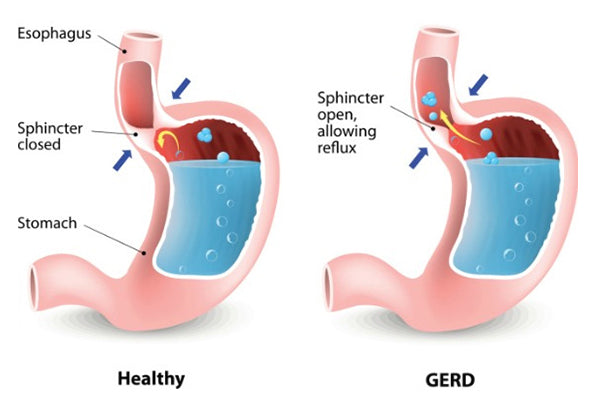Have you found yourself frequently waking up to the shock of being drenched in perspiration? If so, you aren't alone.
It’s not uncommon to experience excessive sweating at night. You may sweat due to several factors, such as:
- The kind of food you had before going to bed
- Sleeping with heavy or too many blankets
- The level of warmth in your room
When Is Sweating at Night a Bad Sign?
While sweating at night isn't necessarily abnormal, it may be a sign of an underlying issue, such as a medical condition.
You'll know something is wrong if you have had repeated episodes of sweating excessively at night such that your bedding and pajamas end up soaked.
What Exactly Are Night Sweats?
Night sweats are defined as a condition in which a person sweats profusely at night, usually in repeated episodes, causing garments and bedding to get wet.
Night sweats are also referred to as sleep hyperhidrosis.
Learning more about what causes night sweats is a starting point for understating how to deal with them effectively.
Medication
If you're on medication, it could be the reason why you've been experiencing night sweats.
Why? Certain types of medication are known to cause night sweats as a side effect.
These include:
- Diabetes medication (e.g., hypoglycemic agents used to correct low sugar levels in the blood)
- Medication for pain relief, such as acetaminophen and aspirin
- Depression medication such as antidepressants containing selective serotonin reuptake inhibitors
- Drugs that block hormones used in treating certain cancers
- Steroids such as prednisone and cortisone
- Phenothiazine antipsychotics
Gastroesophageal Reflux
Gastroesophageal reflux disease (GERD) can occur both at night and during the day, and it may bring about night sweats.

Image: EatRight
Sweating may be accompanied by:
- Heartburn after meals
- Chest pain
- Problems with swallowing
- Regurgitation
Stress and Anxiety
When we're stressed out and have anxiety, our bodies produce more sweat than usual.
Hyperhidrosis related to stress and anxiety may manifest alongside the following:
- Sleep issues and/or unpleasant dreams
- Exhaustion and weakness
- Upset stomach and trouble digesting
- A series of body aches and pains or muscle tension
- Irritability and frequent mood changes
In such cases, it's important to work with a therapist who can help you resolve these issues which will, in turn, reduce sweating at night.
Hormone Disorders
Hormone conditions can lead to night sweats due to a problem in the hypothalamus.
This part of the brain releases and inhibits hormones in addition to regulating body temperature. Should the hypothalamus be unable to perform its functions, you could experience hyperhidrosis.
This can be corrected through hormone replacement therapy
Hormonal disorders and issues which can cause excessive nighttime sweating include:
Sleep Apnea
When one has sleep apnea, they stop breathing while asleep, which could happen multiple times in a given night.
Sleep apnea can be obstructive, meaning there is a blockage in the airway (e.g., because of throat tissue) or central, meaning it is an effect of a medical condition.
Studies such as this one have identified a correlation between sleep apnea and sleep hyperhidrosis.
Menopause
Night sweats are common among women who have reached menopause.
At this stage, estrogen levels decrease, leading to an imbalance in hormones. This causes hot flashes and night sweats.
Keeping the bedroom well-ventilated and undergoing hormone replacement therapy can help ease sweating heavily at night.
Neurological Disorders
Though rare, night sweats may sometimes occur as a symptom of certain neurological disorders. These are accompanied by the following symptoms:
- Loss of appetite
- Dizziness or lightheadedness
- Trembling
- Losing consciousness
- Numbness in the legs, feet, arms, and hands
- Weakness in the muscles
Infection
Many infections can cause a fever, which in turn leads to night sweats, including:
- Osteomyelitis: An infection in the bones
- Tuberculosis: This highly contagious infection usually affects the lungs
- Endocarditis: An infection of the valves in the heart
- Brucellosis: Caused by consuming unpasteurized products from infected animals
If you experience night sweats over a period of several weeks and feel under the weather, seek a doctor's assessment to rule out the possibility of infection.
Don't Let Sweat Hold You Back
Hyperhidrosis affects a person's quality of life. It leads to depression, low self-esteem and has a negative impact on how we interact with others. In turn, this keeps many people from feeling free to live life to the fullest.
It doesn't have to be this way.
One solution is wearing sweat-proof clothing designed to keep you feeling dry and fresh such as Sweatshield Undershirts. Clothes with a sweat barrier do the following:
- Avoid stains by absorbing sweat around the underarms
- Stop odor right from its starting point
- Help you keep cool and comfortable
Give our tried and tested solutions a try. They've worked for thousands of people over the past decade and the reviews speak for themselves.
Photo: Katemangostar









